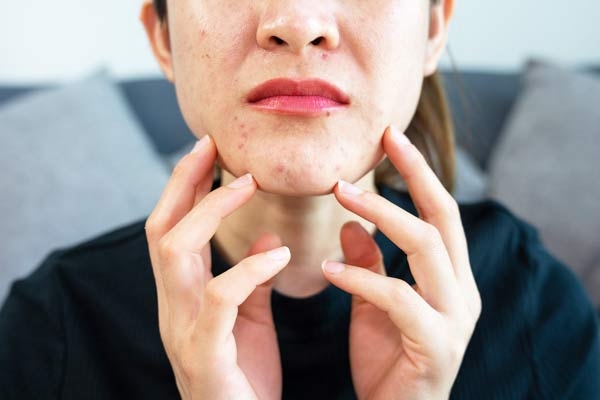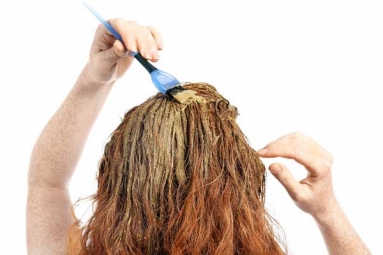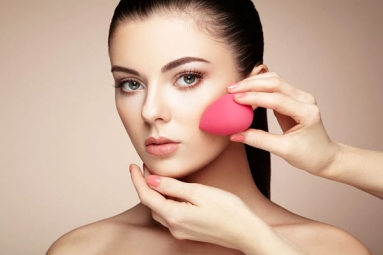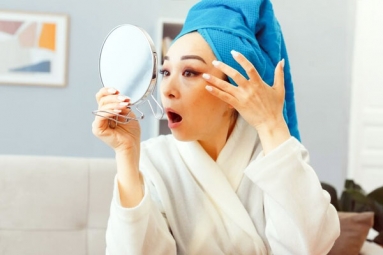
(Image source from: Canva.com)
Acne can be annoying. Well, stress is said to be a common cause of acne, but it is sometimes overlooked when it comes to facial care. Stress acne is different from regular acne because it has unique symptoms and patterns that are closely related to physical and mental health. Knowing about stress acne will help you control it and take preventive measures to keep your skin clear and healthy. Let's look at how to prevent stress acne from appearing on sensitive skin.
Stress acne: If you wake up with breakouts in the morning, you might think it's because of hormones. Stress acne occurs when certain hormones increase due to extreme stress. The “stress hormone”, also called cortisol, ensures that the sebaceous glands produce more sebum. Cracks can appear due to clogged pores caused by this excess oil. In addition, stress also has an impact. The body's ability to fight inflammation and repair is reduced, acne worsens, and healing is delayed. Doctors say hormonal acne occurs one at a time, so stress can be a factor in: Acne clumps can appear all at once.
Stress acne symptoms
Effects on the T-zone: Stress-related acne can occur anywhere on the face, especially in the T-zone (forehead, nose, chin). In contrast, hormonal acne occurs in specific areas such as the chin and jawline.
Changes in skin texture: Visible and noticeable rough skin texture is often the result of dull skin, loss of natural radiance and shine, and a rough, rough feel.
Itching and redness: Stress can disrupt the skin barrier and release hormones like cortisol, which can aggravate and redden the skin. Prolonged stress can worsen skin conditions like psoriasis and eczema, highlighting the importance of stress reduction and skin care.
Painful cysts: As a result of clogged pores and infections, severe acne can lead to uncomfortable cysts that can cause swelling, discomfort, and even scarring. This disease can affect physical appearance and mental health, affecting the face, back and chest.
Acne scars: Stress can cause you to unintentionally pick or scratch pimples, which can damage your skin and lead to pigmentation and scarring problems.
How To Manage Stress Acne:
Stress Management: Stress management is the first key to preventing stress acne. Do stress reduction exercises such as yoga, mindfulness, deep breathing, and meditation to reduce your stress levels.
Make sure to wash your face thoroughly. Preventing and relieving acne largely depends on how you wash your face. It cleanses the skin, unclogs pores and removes dirt, dead skin cells and excess oil. Washing too much can also make acne worse. Apply a moisturizer – When your skin becomes dry, it produces excess sebum again, which can lead to acne. Therefore, it is important to use a moisturizer even if you have a lot of acne.
Stay out of the sun: In addition to drying out acne, sun exposure can also cause long-term problems. Acne can occur because it tells your body to release more oil. To treat acne, use a non-comedogenic sunscreen that suits your skin type and always keep your skin moisturized.
Avoid makeup: Makeup can clog pores and lead to breakouts. If you still want to use a non-comedogenic, fragrance-free foundation to prevent skin irritation, use this foundation. Be sure to remove all makeup before bed.
Eat well: Limit high-glycemic foods and dairy products, as these can worsen acne in some people. Instead, eat a balanced diet rich in fruits, vegetables and whole grains.
Oral medications: In more severe cases of stress acne, a dermatologist may recommend isotretinoin, hormone therapy, or oral antibiotics.
Stress acne is a common but treatable condition and there is a direct connection between skin health and psychological state. A balanced diet, regular skin care routine, and stress reduction strategies are examples of simple lifestyle adjustments that can have a big impact. Remember that a healthy mind is the first step to clear skin. Maintaining emotional and mental health is good for your skin.













